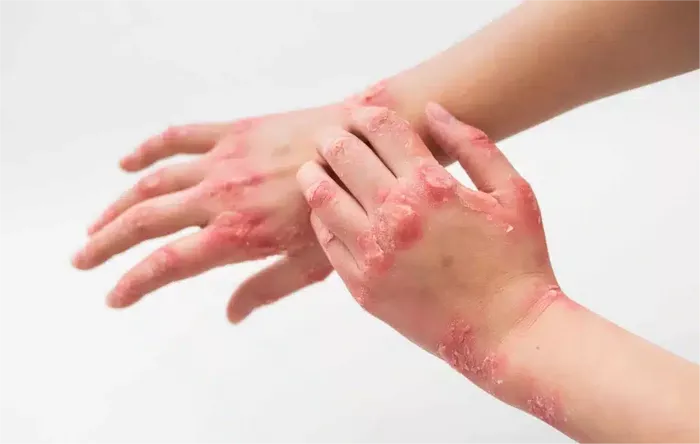Ringworm, despite its name, is not caused by worms but rather by a fungal infection that can affect the skin, scalp, and nails. It’s a common condition that can cause discomfort and concern for those affected. While some may wonder if ringworm can be effectively treated at home, it’s crucial to understand the efficacy of such remedies, the types available, additional tips for managing the condition, and when it’s time to seek professional medical help.
Efficacy of Home Remedies
Home remedies for ringworm can be appealing due to their accessibility and perceived natural properties. While some individuals may find relief from mild cases of ringworm using these remedies, it’s essential to recognize that they may not work for everyone or for all types of ringworm infections. Additionally, what works for one person may not work for another.
It’s crucial to emphasize the importance of consulting a dermatologist for proper diagnosis and treatment, especially for persistent or severe cases of ringworm. A dermatologist can accurately diagnose the condition and recommend an appropriate course of action, which may include prescription medications or other interventions.
Types of Home Remedies
Several home remedies are often suggested for managing ringworm due to their potential antifungal properties. Here are some commonly recommended options:
1. Apple Cider Vinegar: Apple cider vinegar is known for its acidic nature, which may help combat fungal infections. To use it as a remedy for ringworm, dilute it with water and apply it to the affected area using a cotton ball or cloth. However, it’s essential to be cautious as undiluted vinegar may cause irritation.
2. Tea Tree Oil: Tea tree oil is renowned for its antifungal properties. Dilute a few drops of tea tree oil with a carrier oil, such as coconut oil or olive oil, and apply it to the affected area. It’s essential to perform a patch test before applying it widely to ensure you’re not allergic to it.
3. Coconut Oil: Coconut oil is not only moisturizing but also possesses potential antifungal benefits. Apply coconut oil directly to the affected area several times a day. However, if you experience any irritation or discomfort, discontinue use.
4. Garlic: Garlic is believed to have natural antifungal properties. Crush a few cloves of garlic to form a paste and apply it to the affected area. Leave it on for a short period before rinsing it off. Be cautious as garlic may cause skin irritation in some individuals.
5. Aloe Vera: Aloe vera is known for its soothing properties and may also possess antifungal properties. Apply aloe vera gel directly from the plant or a commercially available product to the affected area.
While these home remedies may offer relief for some individuals, it’s essential to use them cautiously and discontinue use if any adverse reactions occur.
Additional Tips for Managing Ringworm
In addition to using home remedies, there are several additional tips for managing ringworm effectively:
1. Hygiene Practices: Keep the infected area clean and dry. Wash the affected area with soap and water regularly and pat it dry gently. Avoid sharing personal items such as towels, clothing, or combs to prevent spreading the infection.
2. Preventing Reinfection: Disinfect personal items that may come into contact with the affected area, such as clothing, bedding, and combs. Wash these items regularly in hot water and dry them thoroughly. Avoid sharing personal items with others, especially if you have an active ringworm infection.
3. Boosting the Immune System: A strong immune system can help the body fight off fungal infections more effectively. Maintain a healthy lifestyle by eating a balanced diet, getting regular exercise, managing stress levels, and getting adequate sleep.
When to See a Doctor
While home remedies may provide relief for mild cases of ringworm, there are situations where seeking professional medical help is crucial:
1. No Improvement with Home Remedies: If you’ve tried home remedies for an extended period with no improvement in symptoms, it’s essential to consult a dermatologist for further evaluation and treatment.
2. Worsening of Symptoms: If your symptoms worsen or spread to other areas despite home treatment, seek medical attention promptly.
3. Ringworm on the Scalp or Nails: Ringworm affecting the scalp or nails often requires prescription medications for effective treatment. A dermatologist can assess the severity of the infection and recommend appropriate treatment options.
4. Weakened Immune System: Individuals with weakened immune systems, such as those with HIV/AIDS or undergoing chemotherapy, may be more susceptible to severe or recurrent fungal infections. It’s crucial for these individuals to seek medical care promptly if they suspect they have ringworm.
Conclusion
In conclusion, while home remedies may offer relief for mild cases of ringworm, it’s essential to approach them with caution and recognize their limitations. Consulting a dermatologist for proper diagnosis and treatment is paramount, especially for persistent or severe cases of ringworm. By combining appropriate medical treatment with good hygiene practices and lifestyle habits, individuals can effectively manage and prevent ringworm infections.


























